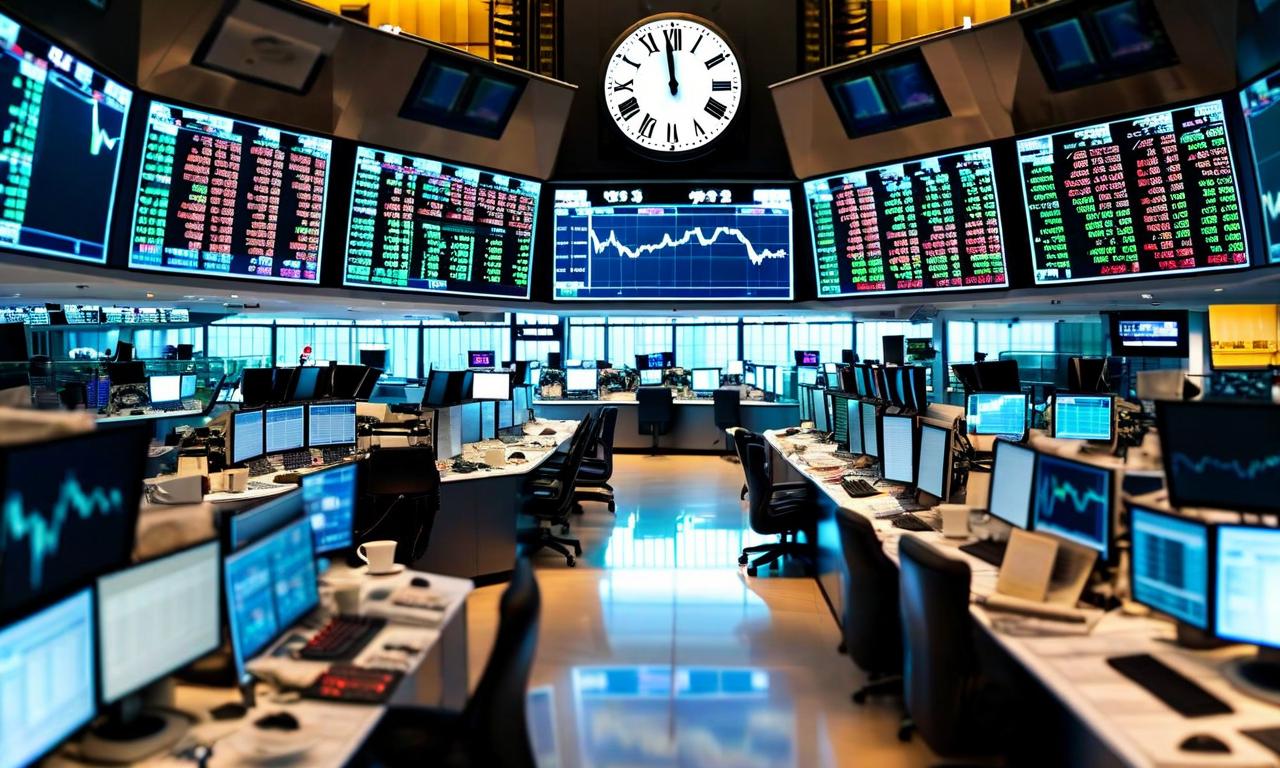BSE Shares Surge on Record Market Share Following New Expiry Schedule
BSE Limited shares climbed up to 6% following a record 56% market share achievement on September 4. This success came after BSE shifted its derivatives expiry from Tuesday to Thursday, contrasting with NSE's move to Tuesday expiries. BSE's premium turnover reached ₹49,265.00 crore, a 40% increase from its previous average. The stock closed 4.6% higher at ₹2,322.10, reflecting positive investor sentiment. Over the past six months, BSE shares have gained 62.80%, with a 29.00% year-to-date increase.

*this image is generated using AI for illustrative purposes only.
BSE Limited (Bombay Stock Exchange) shares experienced a significant boost, climbing as much as 6% on Friday, September 5, following a remarkable achievement in market share. The surge came after BSE recorded its highest-ever market share of 56% on Thursday, September 4, coinciding with the first day of its new expiry schedule.
New Expiry Schedule Drives Market Share Gain
The stock exchange recently implemented a strategic change, shifting its derivatives expiry from Tuesday to Thursday. This move was in contrast to the National Stock Exchange (NSE), which transitioned to Tuesday expiries. The change appears to have paid off handsomely for BSE, as its market share on Thursday significantly outperformed that of NSE, which stood at 44%.
Dramatic Shift in Market Dynamics
The new expiry schedule has led to a dramatic shift in market dynamics. Previously, during Tuesday expiries, NSE typically commanded a dominant 88% market share, leaving BSE with only 12%. The latest figures represent a substantial reversal in this trend, highlighting BSE's growing competitiveness in the derivatives market.
Surge in Premium Turnover
BSE's premium turnover on Thursday reached an impressive ₹49,265.00 crore, marking a substantial 40% increase from its average turnover of ₹35,442.00 crore over the previous five expiries. This surge in turnover further underscores the positive impact of the new expiry schedule on BSE's market performance.
Stock Performance
The market responded positively to these developments, with BSE shares hitting an intraday high of ₹2,343.90. The stock closed 4.6% higher at ₹2,322.10, reflecting investor confidence in the exchange's strategic moves and improved market position.
Long-term Stock Trends
BSE's stock has shown strong performance over recent months. Over the last six months, BSE shares have gained an impressive 62.80%. Year-to-date, the stock has risen by 29.00%, indicating sustained investor interest and positive market sentiment towards the exchange.
The recent surge in BSE's market share and the corresponding rise in its stock price highlight the potential impact of strategic decisions on market dynamics and investor perceptions in the highly competitive stock exchange landscape.
Historical Stock Returns for BSE
| 1 Day | 5 Days | 1 Month | 6 Months | 1 Year | 5 Years |
|---|---|---|---|---|---|
| -3.35% | -1.25% | +0.81% | +22.18% | +57.31% | +4,089.91% |




































